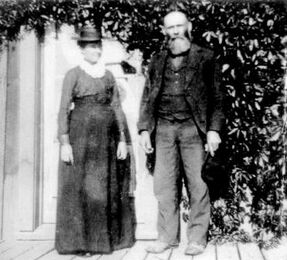 Bertha Brunner Kaser & Fred Kaser, Sr., c1900 [Photo: Kaser Family Collection (KFC)]
Bertha Brunner Kaser & Fred Kaser, Sr., c1900 [Photo: Kaser Family Collection (KFC)] Farming families have very deep roots that weave through foreign soils, float across vast seas, grow new communities wherever they land, and anchor future generations. Family farms survive because they become a way of life for all the members, each totally invested in making the operation succeed in supporting the larger family. But what if a member of that farming family is not drawn to that way of life, one who chooses a different path? Such is the case with Matthew Kaser, now a fifth-generation farmer in eastern Marion County, whose heritage stretches from the southern Silverton hills north to the Marquam/Scotts Mills area. Matthew and his daughter, Salem City Councilor Sara Kaser, joined us to share the story of their family's agricultural legacy.
| Fred (Frederich) Kaser was born in Switzerland in 1849 and immigrated to America at age 18, finally settling in Indiana. He married Bertha Brunner in 1876 and they began raising their family on their 16-acre farm near Vera Cruz, Indiana. In 1882, Fred (as he was now known) decided to follow Bertha's parents, John & Mary Brunner, and relocate his family, which now included three children--the youngest just a newborn, to Oregon. They travelled by train to San Francisco and then by boat to Portland. They settled in an area south of Silverton, commonly known as "Immigrant Ridge," where other Swiss and German families had farms. Fred & Bertha Kaser would eventually have 11 children [Samuel Victor, Joseph Rhoda, Frederick Daniel, Lydia Martha, Bertha Catherine, Elizabeth Elma, Mary Ann, Jacob [died as a newborn], Sarah Ida, John William, and Emma Clara), and would live on their farm at the corner of Kaufman & Hibbard Roads for the rest of their lives. | |
Although the original Kaser farm was sold in later years, Fred's grandson Harvey purchased land along Butte Creek near Marquam where Matthew still farms hazelnuts. Both Matthew and his father, Frederick Daniel, III, were reluctant farmers, initially pursuing other careers--engineering and electrical engineering, respectively, But those deep farming traditions come with deep obligations, and both men came back to the family farm to help out the older generation, both eventually returning to their full-time farming roots.
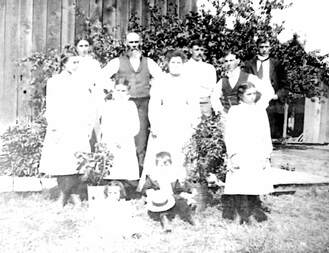
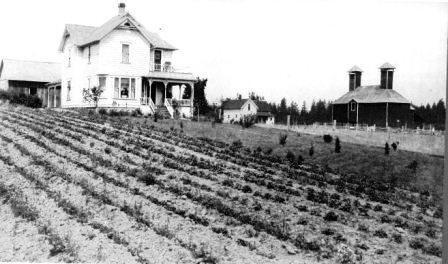
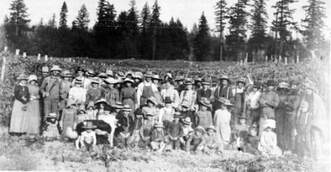
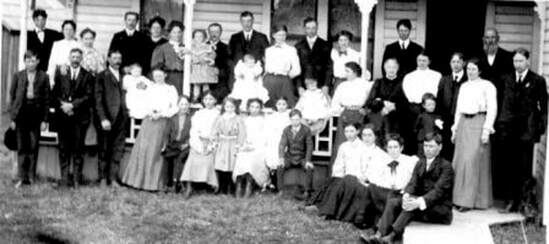
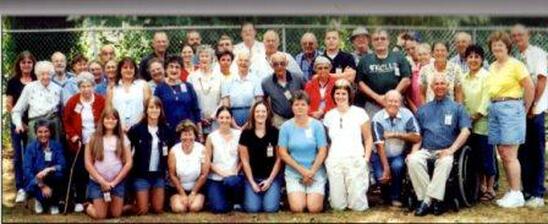


 RSS Feed
RSS Feed